“Remember, when you pitch an investor to finance a film, you’re selling something different. You’re selling the magic and the sizzle of Hollywood and most importantly, you’re selling yourself along with the upside (or fallacy) of what their investment might return. If someone is really in the position to write a check to finance a film, they’re probably pretty savvy. Trust me, they have been pitched everything from financing movies, to night clubs, clothing lines and widgets by someone a lot slicker and more qualified than you. Investors know they hold the key to unlocking the door to the dreams that can change your life, so go deep in thought when creating a presentation…because you’re pitching them on a fantasy (smoke and mirrors), not real estate or something they can look, touch or feel at the moment.”
--From What You Don’t Learn in Film School
by Shane Stanley
Multi-Emmy Award winning filmmaker Shane Stanley has
worked in almost every capacity on and off the set starting with hit shows like
“Entertainment Tonight” and “Seinfeld.”
Along with his father, Stanley produced “The Desperate
Passage Series,” which was nominated for 33 individual Emmy Awards and won 13
statues. In this series, five of the seven specials went No.1 in Nielson
Ratings, which included “A Time for Life” and “Gridiron Gang.”
Stanley has produced films starring Marlon Brando,
Mira Sorvino, Thomas Hayden Church, Donald Sutherland, Marisa Tomei and Martin
Sheen. He co-wrote two of the films and has worked closely with top Hollywood executives.
Stanley has taught workshops at many film schools and
universities. He is the founder of Visual Arts Entertainment, a production
company based in Los Angeles. He is still active in teaching, working with
several schools, film students, and recent grads as a mentor and guide.
Book Description:
Multi
Emmy-Award winning filmmaker Shane Stanley, a lifelong entertainment industry
insider, has worked in every aspect of the film industry, covering a multitude
of movies, television shows, and other projects. In his valuable new book, WHAT YOU DON’T LEARN IN FILM SCHOOL: A COMPLETE GUIDE
TO INDEPENDENT FILMMAKING, Stanley takes a
candid look at the film business and offers ambitious young filmmakers
important information on how to navigate every aspect of making movies, from
initial pitch to distributing a finished product. The book “is written for
anyone who hopes to have a career in the industry at any position, but (is)
geared for (the) total filmmaker,” Stanley says.
Producer Neal H. Moritz (“Fast & Furious,” “S.W.A.T.,” “21 and 22 Jump Street”), says that WHAT YOU
DON’T LEARN IN FILM SCHOOL “pulls no punches. It's one of the most insightful and accurate
books ever written on the subject, a master class bridging the gap between
school and real-life experience that will save you years of heartache. A
must-read for anyone interested in pursuing a career in film.”
Jane Seymour, two-time Golden Globe and Emmy Award winner, actress, producer and founder of the Open Hearts Foundation, declares that Stanley’s “step-by-step guide is a must-read for anyone hoping to break into the world of independent cinema, along with many useful tips for those who desire to work within a studio or network system.”
Jeff Sagansky, former president of Sony Entertainment and CBS Entertainment, notes that “Shane Stanley takes you to a film school that only years of practical experience can teach. He covers both the business of independent filmmaking as well as the hard-earned secrets of a successful production. A must-read for anyone who wants to produce.”
Jane Seymour, two-time Golden Globe and Emmy Award winner, actress, producer and founder of the Open Hearts Foundation, declares that Stanley’s “step-by-step guide is a must-read for anyone hoping to break into the world of independent cinema, along with many useful tips for those who desire to work within a studio or network system.”
Jeff Sagansky, former president of Sony Entertainment and CBS Entertainment, notes that “Shane Stanley takes you to a film school that only years of practical experience can teach. He covers both the business of independent filmmaking as well as the hard-earned secrets of a successful production. A must-read for anyone who wants to produce.”
A
lifelong veteran of the film world, Stanley has directed
and produced hundreds of film and television projects, including the 2006 No. 1
Box Office hit “Gridiron Gang,” starring Dwayne “The Rock” Johnson. His
clearly-written guide to navigating the shoals of independent filmmaking comes
from his hands-on experience, covering such topics as choosing what material to
produce, raising independent capital, hiring a production crew and selecting
the right cast.
WHAT YOU DON’T
LEARN IN FILM SCHOOL is an essential book written by someone who clearly
understands the independent film business from the inside.
Interview:
Can we begin by having
you tell us how you got started as a filmmaker?
Shane: I grew up in and around the industry. My father was a working actor and when I was about 9 months old, he started peddling me out as the baby-for-hire to his friends and colleagues whenever they needed an infant for a project. My career in front of the camera lasted until I was about five. My father had made the transition from acting into filmmaking and I was fascinated with the whole ‘concept to delivery’ process of how a project could go from an idea scribbled on a note pad into becoming a completed film. I was a quick study and learned how to operate a flatbed Steenbeck and Moviola (old-school edit machines), Arri 16mm cameras and all the toys that came with making movies. I started working in our family’s production company doing whatever I could to help. Back then our budgets were meager, so we had to wear many hats in order to get the films made. Before I graduated high school, I had years under my belt as a camera operator, editor, writer, production supervisor and post-production coordinator. I also landed a lot of product placement for our shows and negotiated crew and talent contracts so by the time I started my own company I had a basic idea of what it took to produce a picture.
What is one thing you would tell up and coming filmmakers to prepare themselves for the crazy world of filmmaking?
Shane: Fail and fail often. Today technology allows you to be a filmmaker with just a cell phone and a laptop. On the other hand I think people are too often afraid to learn by trial and error. This gift of technology allows you the freedom to discover who you are as a storyteller and it doesn’t cost anything. Go out and shoot as much as you can and learn what works and what doesn’t - and why - so you can build from your mistakes and hone your craft to becoming the best you can be. Read what you can about the basics so you’re not reinventing the wheel or pushing rocks uphill. There are so many great books written by the masters of our industry that can really help shorten the learning process. But shoot, shoot and go shoot some more. Look at it, edit it and learn. When you’re done, keep on shooting!
What is your best advice on approaching an investor to get them interested in your screenplay?
Shane: Investors have been warned by those in their camp not to invest in movies - so don’t hustle them. Everyone seems to want to pitch potential money sources the blockbuster independents like Napoleon Dynamite, Juno and Paranormal Activity. Those films had a lot more studio muscle behind them than people realize and are extreme cases. If you’re pitching an indie darling, compare it to films like Lovely and Amazing, Once, or Like Crazy. These films cost little to produce and turned very respectable profits that are more realistic to obtain as an independent filmmaker. Base hits and doubles make sense to savvy investors and they’ll be more apt to develop a sense of trust with you early on. If you use nothing but grand slams in your proposals, they’ll get very skeptical.
Do filmmakers necessarily have to have an agent or can they go about everything themselves? What’s the pros and cons?
Shane: This is a loaded question and I exclude actors, models and cinematographers in this answer, as I feel a respectful agent might be of help in getting them traction. Bottom line is, you’re either chasing it or it’s chasing you, and I think as filmmakers our best agents are ourselves. You have social media, YouTube, Vimeo and a host of other platforms that can allow you to show your stuff. Cream rises to the top and gets recognized. I haven’t heard of a fruitful agent/filmmaker relationship that was birthed by the artist knocking on doors or making cold calls hoping to get representation. By in large, agents don’t want to do the grunt work. They want to represent artists who have made names for themselves and just field calls that come in offering more work to their clients. Sorry, that’s just the way it is. The plus side is when your work is drawing respectable agencies who believe they can help you get to the next level or want to help map out your career plan. But don’t worry about it if they don’t come knocking. You posting your work on a populated Facebook page can get more eyeballs and attention than any agent can if you’re not in demand.
Can you tell us one thing you don’t learn in film school?
Shane: I don’t think there’s enough emphasis on the consequences for not having a backup plan. Many students believe their going to be the next Tarantino or Damien Chazelle right out of film school and countless institutions prey on that mindset. Fact is, very few of the grads who get film degrees will ever earn a living in our industry, so I think its important for those who are expecting to be the next big thing to pay extra close attention during camera assistant workshops, grip and electric seminars and editing class. Don’t just get a degree in playing the lottery - learn this business inside and out and learn as many of the positions surrounding it as you possibly can to assure yourself a career in doing what you love.
What are you currently working on, Shane?
Shane: Currently I am focusing on my ‘Summer Sessions’ where I am teaching free workshops to film school students and recent grads giving them a better understanding of what to expect once they leave the nest and go out into the wild. Anyone can sign up at www.whatyoudontlearninfilmschool.com and follow the ‘Summer Sessions’ tab. Once summer is over, I plan to continue writing my next book, “Why Good Actors Don’t Work, which I plan to release before summer 2019. It’s a comprehensive and brutally honest guide to everything actors need to know but never seem to learn, told from the point of view of decision makers and how to become a commodity when you have absolutely no commercial value.
Shane: I grew up in and around the industry. My father was a working actor and when I was about 9 months old, he started peddling me out as the baby-for-hire to his friends and colleagues whenever they needed an infant for a project. My career in front of the camera lasted until I was about five. My father had made the transition from acting into filmmaking and I was fascinated with the whole ‘concept to delivery’ process of how a project could go from an idea scribbled on a note pad into becoming a completed film. I was a quick study and learned how to operate a flatbed Steenbeck and Moviola (old-school edit machines), Arri 16mm cameras and all the toys that came with making movies. I started working in our family’s production company doing whatever I could to help. Back then our budgets were meager, so we had to wear many hats in order to get the films made. Before I graduated high school, I had years under my belt as a camera operator, editor, writer, production supervisor and post-production coordinator. I also landed a lot of product placement for our shows and negotiated crew and talent contracts so by the time I started my own company I had a basic idea of what it took to produce a picture.
What is one thing you would tell up and coming filmmakers to prepare themselves for the crazy world of filmmaking?
Shane: Fail and fail often. Today technology allows you to be a filmmaker with just a cell phone and a laptop. On the other hand I think people are too often afraid to learn by trial and error. This gift of technology allows you the freedom to discover who you are as a storyteller and it doesn’t cost anything. Go out and shoot as much as you can and learn what works and what doesn’t - and why - so you can build from your mistakes and hone your craft to becoming the best you can be. Read what you can about the basics so you’re not reinventing the wheel or pushing rocks uphill. There are so many great books written by the masters of our industry that can really help shorten the learning process. But shoot, shoot and go shoot some more. Look at it, edit it and learn. When you’re done, keep on shooting!
What is your best advice on approaching an investor to get them interested in your screenplay?
Shane: Investors have been warned by those in their camp not to invest in movies - so don’t hustle them. Everyone seems to want to pitch potential money sources the blockbuster independents like Napoleon Dynamite, Juno and Paranormal Activity. Those films had a lot more studio muscle behind them than people realize and are extreme cases. If you’re pitching an indie darling, compare it to films like Lovely and Amazing, Once, or Like Crazy. These films cost little to produce and turned very respectable profits that are more realistic to obtain as an independent filmmaker. Base hits and doubles make sense to savvy investors and they’ll be more apt to develop a sense of trust with you early on. If you use nothing but grand slams in your proposals, they’ll get very skeptical.
Do filmmakers necessarily have to have an agent or can they go about everything themselves? What’s the pros and cons?
Shane: This is a loaded question and I exclude actors, models and cinematographers in this answer, as I feel a respectful agent might be of help in getting them traction. Bottom line is, you’re either chasing it or it’s chasing you, and I think as filmmakers our best agents are ourselves. You have social media, YouTube, Vimeo and a host of other platforms that can allow you to show your stuff. Cream rises to the top and gets recognized. I haven’t heard of a fruitful agent/filmmaker relationship that was birthed by the artist knocking on doors or making cold calls hoping to get representation. By in large, agents don’t want to do the grunt work. They want to represent artists who have made names for themselves and just field calls that come in offering more work to their clients. Sorry, that’s just the way it is. The plus side is when your work is drawing respectable agencies who believe they can help you get to the next level or want to help map out your career plan. But don’t worry about it if they don’t come knocking. You posting your work on a populated Facebook page can get more eyeballs and attention than any agent can if you’re not in demand.
Can you tell us one thing you don’t learn in film school?
Shane: I don’t think there’s enough emphasis on the consequences for not having a backup plan. Many students believe their going to be the next Tarantino or Damien Chazelle right out of film school and countless institutions prey on that mindset. Fact is, very few of the grads who get film degrees will ever earn a living in our industry, so I think its important for those who are expecting to be the next big thing to pay extra close attention during camera assistant workshops, grip and electric seminars and editing class. Don’t just get a degree in playing the lottery - learn this business inside and out and learn as many of the positions surrounding it as you possibly can to assure yourself a career in doing what you love.
What are you currently working on, Shane?
Shane: Currently I am focusing on my ‘Summer Sessions’ where I am teaching free workshops to film school students and recent grads giving them a better understanding of what to expect once they leave the nest and go out into the wild. Anyone can sign up at www.whatyoudontlearninfilmschool.com and follow the ‘Summer Sessions’ tab. Once summer is over, I plan to continue writing my next book, “Why Good Actors Don’t Work, which I plan to release before summer 2019. It’s a comprehensive and brutally honest guide to everything actors need to know but never seem to learn, told from the point of view of decision makers and how to become a commodity when you have absolutely no commercial value.




























































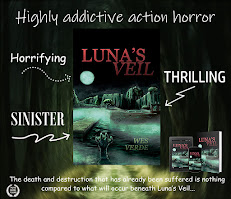














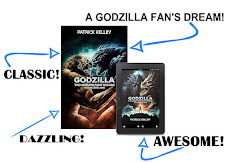






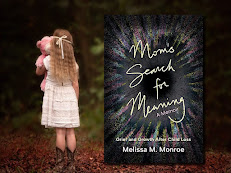



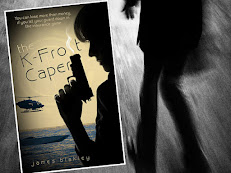

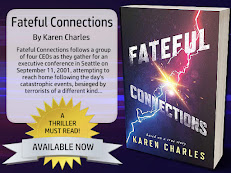
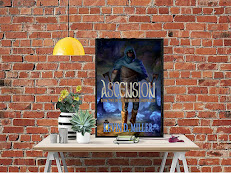






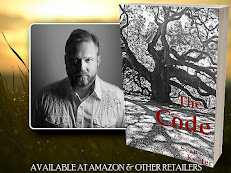




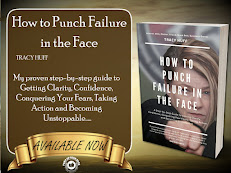



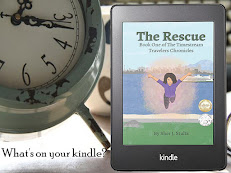















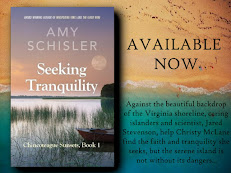


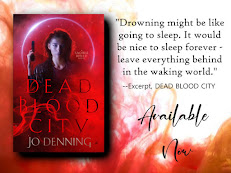


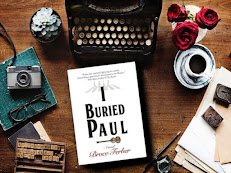
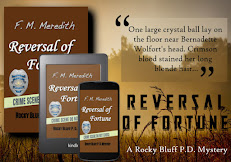


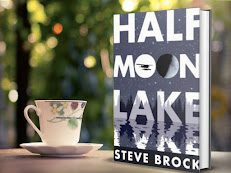

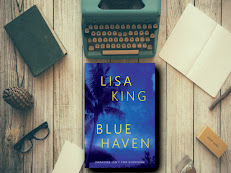











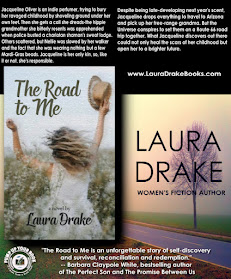



























No comments:
Post a Comment